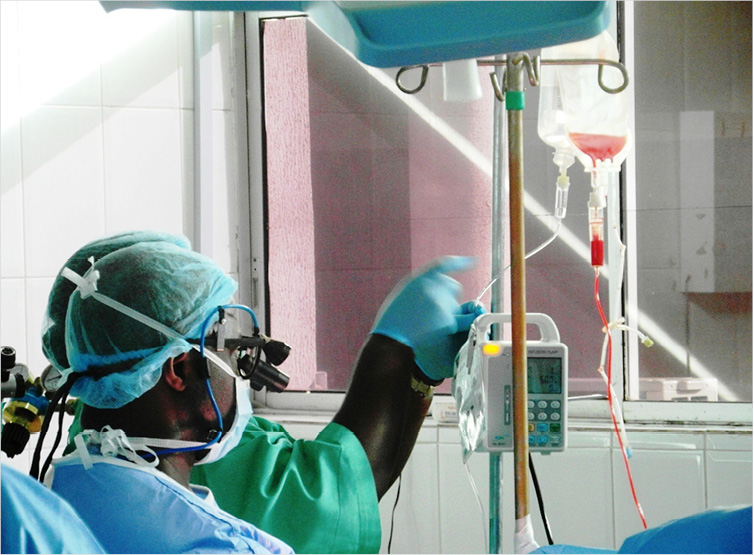Stressed surgeons make 66% more mistakes
If you have often wondered how surgeons posses nearly super-human strength to stand on their feet through long surgeries, wonder no more. They are humans, after all—and vulnerable to stress. A new study finds that during stressful moments in the operating theatre, surgeons make up to 66% more mistakes on patients. A researcher used a […]

Stressed surgeons make 66% more mistakes
If you have often wondered how surgeons posses nearly super-human strength to stand on their feet through long surgeries, wonder no more.
They are humans, after all—and vulnerable to stress. A new study finds that during stressful moments in the operating theatre, surgeons make up to 66% more mistakes on patients.
A researcher used a technology that captured the electrical activity of a surgeon’s heart.
It recorded reactions during short-term stress, which can triggered by just about anything from a negative thought to a loud noise in the theatre.
It found surgeons were much more prone to make mistakes that can cause bleeding, torn tissue or burns.
It is thought the findings, published in the open branch of the British Journal of Surgery, could lead to the development of protocol aiming to reduce acute or short-term stress on surgeons working in the operating room.
In the US alone, medical errors cause up to 440,000 deaths every year, a proportion of them in operating rooms.
The study’s lead author, Peter Dupont Grantcharov, is a master’s student at the Data Science Institute at Columbia University.
He got Dr Homero Rivas, an associate professor of surgery at Standford Medical Centre to wear a Hexoskin Smart Shirt under his scrubs while he did surgeries.
The shirt, designed to give athletes precise physiological data during workouts, measures the electrical impulses that trigger heartbeats.
From this data, Grantcharov derived the variation in times between hearbeats to monitor the surgeon’s momentary stress levels.
Grantcharov was also allowed in the operating room, where he collected laparoscopic video recordings of Rivas as he worked.
Another researcher later reviewed the recordings and documented Rivas’s mistakes using validated frameworks for assessing surgical performance.
Both his stress levels and surgical errors were time-stamped so that Grantcharov could correlate the two: the effect of short-term stress on surgical error was as high as 66% increase.
“I was surprised by that, as well as by the amount of distractions in the operating room,” says Grantcharov, who did the study while working as a research assistant at the Stanford Medical Center before enrolling at DSI.
But it is not nearly as alarming as it should. Surgery calls for close to zero margin of error, but surgeons are human.
The finding is “huge,” says Dr Kawu Ahidjo, consultant spine surgeon at Abuja’s Spinecare Hospital, with loads of surgeries under his belt.
“That’s statistics anyway. What kind of errors and whats the effect of that particular error on the patient’s life? It just says surgeons can make mistakes and this is the level to which they can do it. Is it a life-threatening mistaken or not?”
The study notes burns, tears and bleeding only.
“Even in normal surgeries, you are going to have that. That should not alarm anybody. At the end of the day, the surgery went well. That’s what’s important,” said Ahidjo.
Grantcharov has high hopes. “Many machines have alarms that go off periodically, equipment malfunctions, side conversations take place, people walk in and out of the OR – I could go on. My hope is that other researchers will build upon our work to make further strides in learning about the causes of stress on surgical personnel. If our study helps make the OR a safer place for patients, I’d be thrilled.”
